Yes campaign for Indigenous voice to parliament calls to supporters in low-key rallies
There was no brass band, not a bell or whistle to be heard when the pro-voice forces finally took a no-frills pitch to the people.
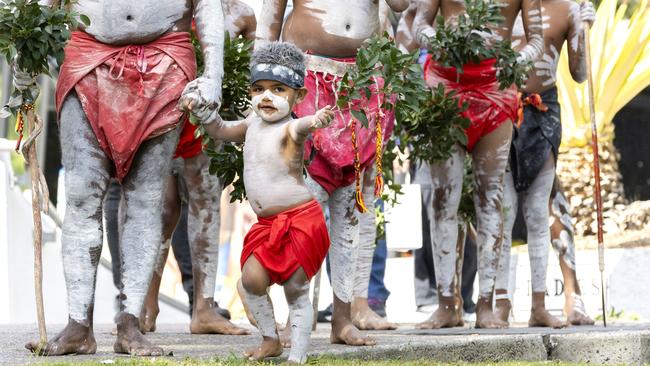
There was no brass band, not a bell or whistle to be heard when the Yes campaign on the voice finally took its no-frills pitch to the people.
It was more a day on the green with the kids dancing in the warm Brisbane sun while Indigenous Australians Minister Linda Burney applied the soft-sell to the question that threatens to divide the nation ahead of a referendum later this year.
As Ms Burney put it, addressing a receptive crowd of 2000 in Roma Street Parklands, the nay-sayers were trying to complicate what really was a very simple proposition.
“It came from dialogues of Indigenous people right across the country. It came from the constitutional convention six years ago. It came as an invitation to you, the Australian people,” the minister said of the proposed voice to parliament and executive government.
“And this is your referendum. It is not the plaything of politicians.”
Strap in, because the ride to the vote, most likely in October following the football finals or possibly in December as Australia slides into Christmas – the decision was still in the hands of the Prime Minister, Ms Burney insisted – is going to be quite the rollercoaster.
To date, the No campaign has stolen a march on the affirmative side: louder, more emphatic and consistently sharper in its prosecution of the case against the voice. Newspoll confirmed the trend last week, showing the referendum would fail if conducted now.
Team Yes had been waiting for the referendum question to pass parliament before launching its answer on Sunday at 25 community-based rallies, coast to coast, coinciding with the start of NAIDOC Week.
Aboriginal leader and voice co-architect Noel Pearson mingled with Yes supporters at a rally on the Sunshine Coast, and the nation’s biggest pro-voice event at Sydney’s Alfred Park was attended by politicians from across the political spectrum, from ex-NSW Liberal treasurer Matt Kean to federal Environment Minister Tanya Plibersek.
The scene in Brisbane was in keeping with the Yes side’s strategy to argue its case sotto voce without celebrities or sporting bigshots to do the talking, a picnic minus the pointscoring.
There was a sausage sizzle, live music, and polite queues for the port-a-loos. Music and movement was supplied by the Wakka Wakka dancers from Cherbourg community, north of Brisbane.
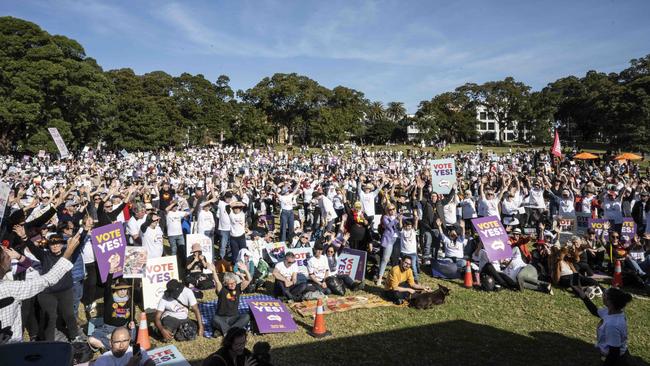
Turrbal elder Joe Kirk told how the grassy reserve had once been part of a swamp that ran all the way to Charlotte St in the city, where Aboriginal women gathered water lilies and the girls were ritually initiated.
“This is a spiritual and sacred place,” Uncle Joe said.
The kids were shushed as people leaned forward to hear him. “We’ve come here for the word, yes,” he said. “We learnt that word when we were brought up on the missions: we said ‘yes’ to the superintendent, yes to the white man. Today we can say ‘yes’ to the referendum because we want to say ‘yes’.”
Ms Burney moved through the crowd shaking hands and exchanging words with a friend here, a familiar face there, before shedding her Canberra-weight coat and taking the microphone.
First thing to know was that the voice would make a practical difference to the lives of Aboriginal and Torres Strait Islander people. “It is not OK that my life expectancy is 10 years shorter than my non-Aboriginal sisters,” she said.
“It is not OK that our babies are born at the wrong birth weight – they’re too small.
“It is not OK that educational outcomes are smaller. And it’s certainly not OK as I saw … two weeks ago, 30 people living in a two-bedroom home. That is not the country we want.”
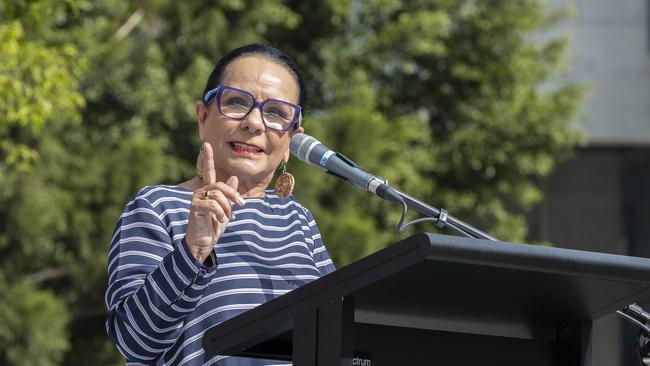
Taking aim at criticism that there was insufficient detail about the voice for Australians to vote on, Ms Burney said: “I’m supposed to know what colour the carpet is going to be. But it will be an independent body, it will be chosen by Aboriginal and Torres Strait Islander people and it will give advice not only to the executive government, but also the parliament.”
Yes campaign director Dean Parkin appealed to people to join the movement. Don’t sit back or wait for an invitation; don’t be distracted by the “noise in the news”, he said. “It’s really simple: if only one in 10 of you here today are able to have a yarn with two people in your families or your communities and bring them on board to Yes, we will win this referendum.”
Ms Burney refused to be sidetracked from her upbeat message. She declined to respond to reporters’ questions about Peter Dutton’s criticism of big corporates such as BHP, Rio Tinto and Wesfarmers for each donating $2m to the official Yes23 campaign, saying: “This referendum is not about me, not about the Prime Minister, not about Peter Dutton.”
It was about making history and making the country better.
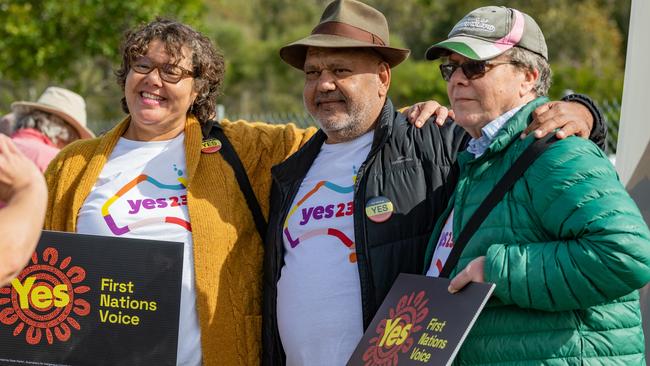
“How often do we get the chance to put our shoulder against the wheel of history and give it a bit of a shove? It comes once a lifetime and this is our time. It is your time to lean against the wheel of history and lean into it hard,” she said, as applause rippled through the crowd.
“This is about moving the conversations forward. This is about moving Australia forward for everyone. This can be a moment and will be a moment of unity, a change that we can all be proud of.”



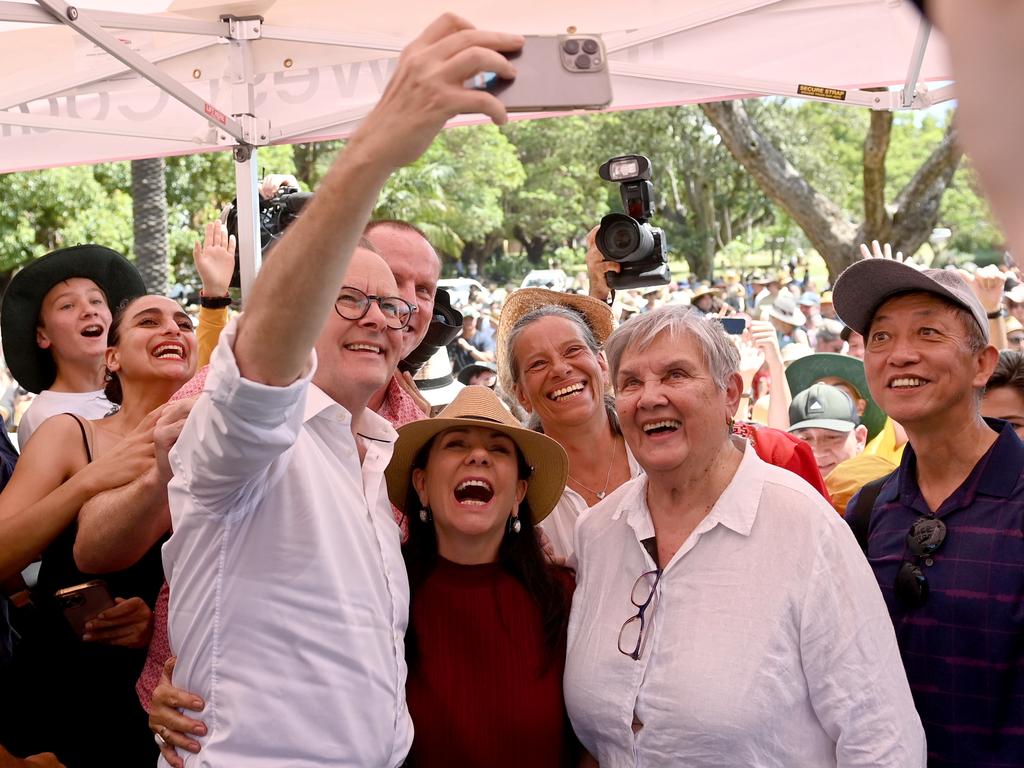

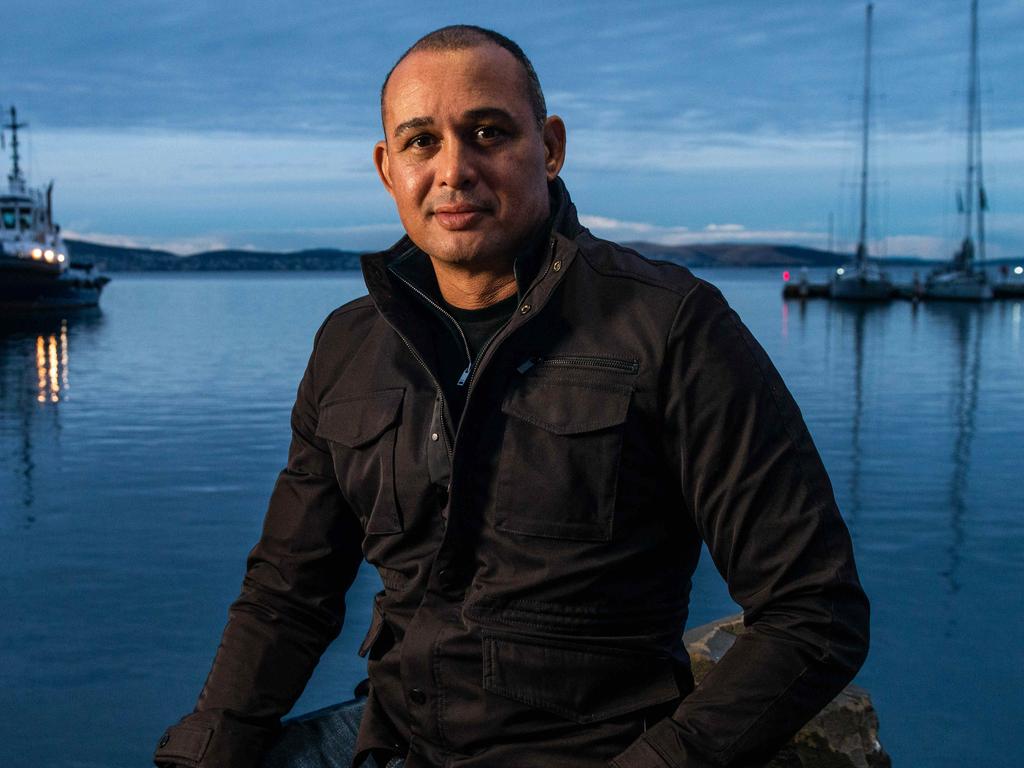
To join the conversation, please log in. Don't have an account? Register
Join the conversation, you are commenting as Logout